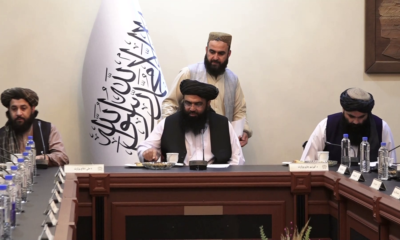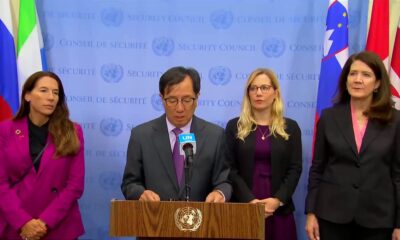Regional
Pakistan launches strikes inside Iran against militant targets
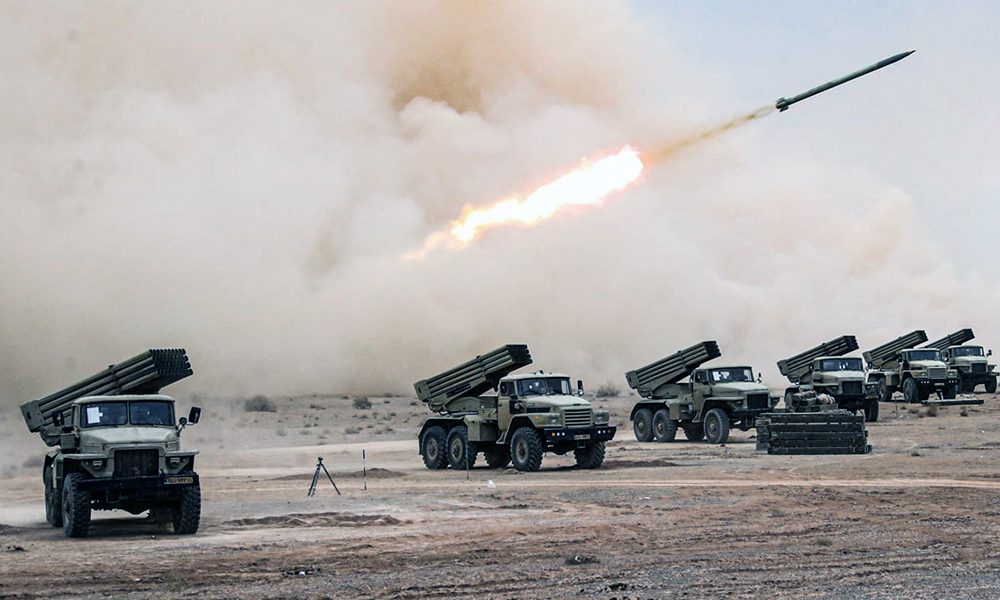
Pakistan conducted strikes inside Iran on Thursday, targeting separatist militants, the Pakistani foreign ministry said, two days after Tehran said it attacked Israel-linked militant bases inside Pakistani territory, Reuters reported.
Iranian media said several missiles hit a village in the Sistan-Baluchistan province that borders Pakistan, killing three women and four children, all non-Iranians.
“A number of terrorists were killed during the intelligence-based operation,” the Pakistani ministry said in a statement, describing it as a “series of highly coordinated and specifically targeted precision military strikes against terrorist hideouts”.
It added, “Pakistan fully respects the sovereignty and territorial integrity of the Islamic Republic of Iran.
“The sole objective of today’s act was in pursuit of Pakistan’s own security and national interest, which is paramount and cannot be compromised.”
A Pakistani intelligence source told Reuters the strikes were carried out by military aircraft, read the report.
“Our forces have conducted strikes to target Baloch militants inside Iran,” the intelligence official in Islamabad, the Pakistani capital, said.
“The targeted militants belong to BLF,” he added, referring to the Balochistan Liberation Front, which seeks independence for Pakistan’s Balochistan province.
Iran said on Tuesday it had targeted Israel-linked militant bases inside Pakistan. Pakistan said civilians had been hit and two children killed, warning of consequences for which Tehran would be responsible.
Islamabad recalled its ambassador from Iran on Wednesday, Reuters reported.
Pakistan and Iran have in the past had rocky relations, but the strikes are the highest-profile cross-border intrusion in recent years.
Pakistan recalls envoy from Iran after ‘unprovoked’ missile strikes
Pakistan recalled its ambassador from neighbouring Iran on Wednesday to protest at a “blatant breach” of its sovereignty after Tehran said it launched missile attacks on militant bases in southwestern Pakistan.
Iran’s foreign minister said it hit militants in “missile and drone” strikes. State media said Iranian missiles struck two bases of the Sunni Muslim group Jaish al-Adl, designated a “foreign terrorist organisation” by the U.S. State Department.
Nuclear-armed Pakistan said a violation of its airspace resulted in the deaths of two children but has not confirmed the nature of the violation, or the location of the strikes.
Only militants were hit, Iranian Foreign Minister Hossein Amirabdollahian said in Davos, Switzerland, where he was attending the World Economic Forum, alleging those attacked were linked to Israel, read the report.
Pakistan and Iran have in the past had rocky relations, but the strikes are the highest-profile cross-border intrusion in recent years.
The strikes were launched a day after similar attacks carried out by Tehran inside other neighbours, Iraq and Syria. Baghdad recalled its ambassador from Tehran after Iran’s state-backed media said it had hit an Israeli espionage centre.
Provincial officials in Pakistan said two children were killed and several others injured in strikes near the Iran border.
The violation was unprovoked and unacceptable, said Pakistani foreign ministry spokeswoman, Mumtaz Zahra Baloch. Pakistan reserved “the right to respond to this illegal act”, a message it had conveyed to the Iranian government, she said.
Pakistan would not allow Iran’s ambassador, currently visiting his home country, to return, Baloch said.
A joint border trade committee meeting had been canceled, and a Pakistani trade delegation had been recalled from Chabahar in Iran, said government official Aurangzeb Badini.
“Further escalation is possible, though Islamabad has strong incentives to be cautious,” said Michael Kugelman, director of the Wilson Center’s South Asia Institute, adding that Beijing might also step in to help mediate.
“China has close ties to both Iran and Pakistan, and it has a strong interest in the crisis not spiraling out of control …it will likely quietly press the two sides to step back from the brink” he said.
Jaish al-Adl has in the past mounted attacks on Iranian security forces in the border area with Pakistan.
Officials in Pakistan’s southwestern province of Balochistan, which borders Iran, said that four missiles had hit the Panjgur district close to the border.
“Four missiles were fired in the village of Koh-i-Sabaz which is around 50 km (31 miles) inside Pakistan soil,” a senior official of the Panjgur administration told Reuters.
“A mosque and three houses were damaged in the attack,” another official said, adding that two young girls were killed and three other people injured.
Jaish al-Adl, which says it seeks greater rights and better living conditions for ethnic minority Baluchis, has claimed responsibility for several attacks in recent years on Iranian security forces in Iran’s southeastern province of Sistan-Baluchestan.
In its previous iteration as Jundallah, the group had pledged allegiance to Iraq- and Syria-based jihadist group the Islamic State.
Iran’s Amirabdollahian had a phone call with his Pakistani counterpart Jalil Abbas Jilani, according to an Iranian foreign ministry statement, and stressed Tehran’s respect for Pakistan’s sovereignty, Reuters reported.
“Iran’s security has been repeatedly targeted by Jaish al- Adl terrorist group from Pakistani soil and we are hopeful that stronger security cooperation between the two countries continue,” Amirabdollahian said.
Regional
Egypt’s Sisi makes first presidential visit to Turkey in 12 years
Erdogan met Sisi at Ankara airport on Wednesday and the two then travelled in the same car to the presidential palace for around two hours of talks.
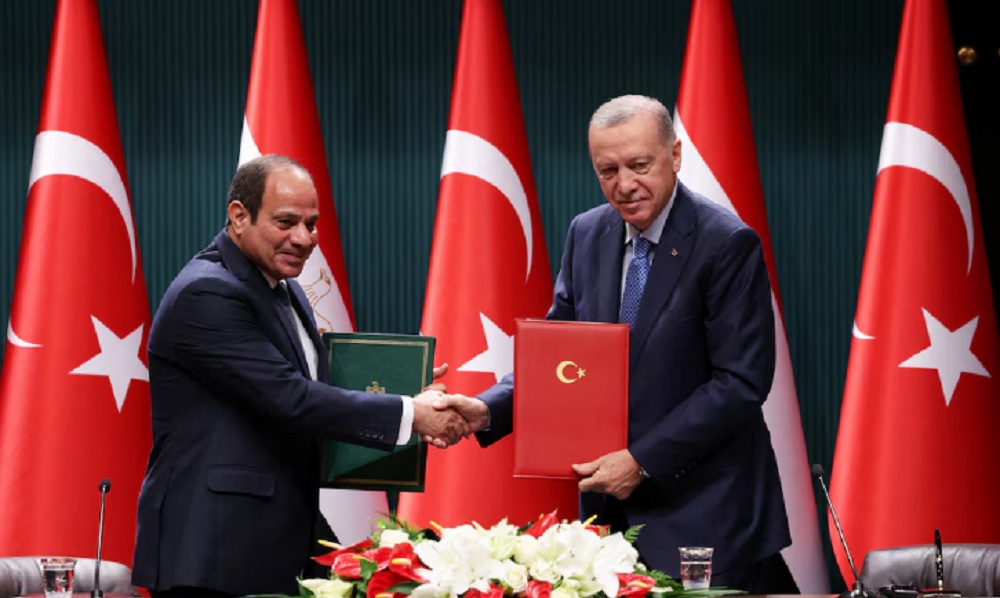
Turkish President Tayyip Erdogan and Egyptian counterpart Abdel Fattah al-Sisi discussed the Gaza war and ways to further repair the long-frozen ties between the regional powers during talks in Ankara, in the first such presidential visit in 12 years.
Relations between Ankara and Cairo collapsed in 2013 after Egypt’s then-army chief Sisi led the ousting of the Muslim Brotherhood’s Mohamed Mursi, a Turkish ally who had become Egypt’s first democratically elected president the year before, Reuters reported.
Ties between the two countries began thawing in 2020 when Ankara launched a diplomatic drive to ease tensions with its estranged regional rivals, including the United Arab Emirates, Saudi Arabia and Egypt.
Last year, Ankara and Cairo mutually reappointed ambassadors and Turkey said it would also provide Cairo with armed drones. Erdogan travelled to Cairo in February for his first trip to Egypt since 2012.
He met Sisi at Ankara airport on Wednesday and the two then travelled in the same car to the presidential palace for around two hours of talks.
“With a win-win mindset, we will carry our multi-dimensional ties forward,” Erdogan said, adding Ankara particularly wanted to deepen ties with Egypt on natural gas and nuclear energy.
Ministers from the two countries signed 18 memorandum of understanding on cooperation in energy, defence, tourism, health, agriculture, finance, culture, education, and transport.
Speaking at a joint press conference, Erdogan reiterated that Turkey and Egypt wanted to boost annual trade by $5 billion to $15 billion in the next five years.
He added that Ankara and Cairo shared a “common stance” on the Palestinian cause, while Sisi said they were both calling for a ceasefire in Gaza and an end to violence in the West Bank.
Turkey, which has condemned Israel for its war against Hamas militants in Gaza, has sent thousands of tonnes of aid to Egypt for Palestinians and praised Cairo’s humanitarian efforts and role as negotiator in the talks on a ceasefire and hostage deal.
Sisi said they also discussed the situation in Libya, over which the two countries have long been at odds and backed opposing factions in an unresolved conflict.
“We stress that it is important to turn the page on the ongoing crisis through holding presidential and parliamentary elections simultaneously with the exit of illegal foreign forces and mercenaries from the country, and put an end to the presence of armed militias to end the division,” he said.
Regional
Helicopter of Iran’s late president Raisi crashed due to weather, final report says
A preliminary report by Iran’s military had said in May that no evidence of foul play or an attack had been found during the investigation.
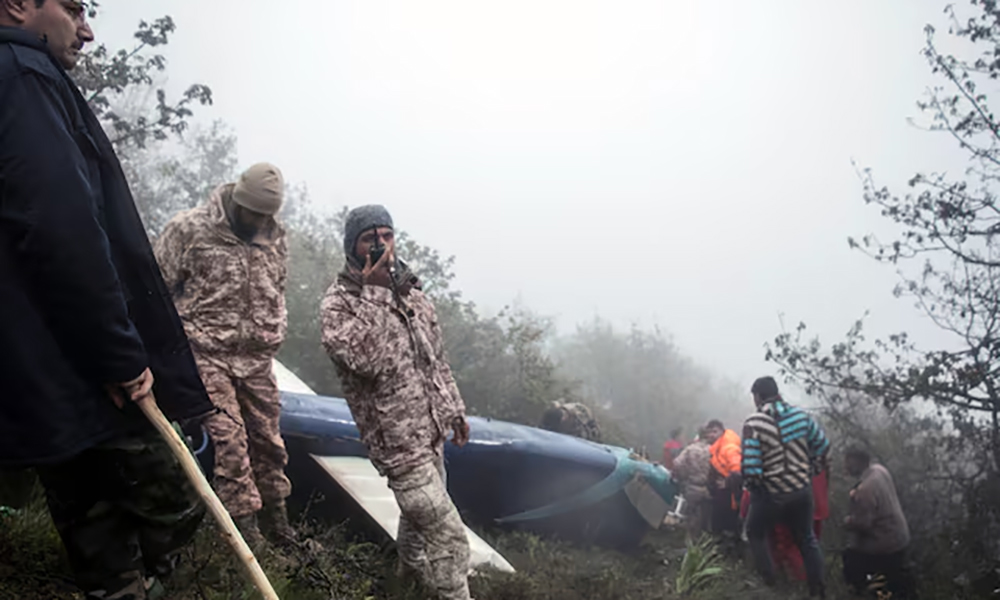
The helicopter crash in which Iran’s late President Ebrahim Raisi was killed was primarily caused by weather conditions that included thick fog, Iran’s state TV said on Sunday, citing the final investigation report on the incident, Reuters reported.
Iranian President Ebrahim Raisi, a hardliner who was seen as a potential successor to Supreme Leader Ayatollah Ali Khamenei, died when his helicopter crashed in May in a mountainous region near the Azerbaijan border.
“The main reason of the helicopter crash was complicated weather conditions in the region,” the final report concluded, according to Iran’s state TV.
A thick mass of fog caused the helicopter that was carrying Raisi and his companions to crash into the mountain, the report issued by a high committee charged by Iran’s military with investigating the incident said.
A preliminary report by Iran’s military had said in May that no evidence of foul play or an attack had been found during the investigation, read the report.
Regional
Three Israelis killed in West Bank shooting attack
Prime Minister Benjamin Netanyahu said three policemen had been in the vehicle and were killed in Sunday’s attack.

Three Israelis were killed on Sunday when their vehicle came under fire near the city of Hebron in the occupied West Bank, Israeli officials said.
The military confirmed the attack in the area of the Idna Tarqumiyah Junction, saying that security forces were searching for the assailants, Reuters reported.
Hundreds of Israeli troops have been carrying out raids across the West Bank since last Wednesday in one of their largest actions in the area in months, which Israel says is aimed at rooting out Islamist militants.
The operation has drawn international calls for a halt.
Prime Minister Benjamin Netanyahu said three policemen had been in the vehicle and were killed in Sunday’s attack.
“We are fighting on all fronts against a cruel enemy who wants to murder us all,” Netanyahu said, also referring to six Israeli hostages killed in captivity in Gaza and whose bodies were recovered from a tunnel on Sunday.
Finance Minister Bezalel Smotrich, a hardline member of Israel’s security cabinet, called for more action against Palestinian militants in the West Bank.
“We need to do now what we didn’t do that awful night and launch a pre-emptive strike and strike terrorism hard,” he said, referring to Hamas’ deadly Oct. 7 attack on Israel.
“We are committed to eliminating terrorism on all fronts,” he said, speaking from the scene of Sunday’s attack.
Israel’s ambulance service had initially said two people had been killed and a third critically wounded.
Hamas, which is fighting a war with Israel in Gaza, praised the attack in the West Bank, but did not claim it, saying it was a “natural response to the massacres and genocide in the Gaza Strip”.
“We call on all those who carry weapons to direct their bullets at the chests of the occupiers who continue to commit massacres against our people in Gaza Strip,” the statement said.
Israel denies committing acts of genocide in the Gaza war, which was triggered by Hamas’ Oct. 7 strike on Israel.
-

 Sport4 days ago
Sport4 days agoKuwait beats Afghanistan 4-3 in five-a-side Futsal tournament match
-

 World5 days ago
World5 days agoUS researchers find probable launch site of Russia’s new nuclear-powered missile
-
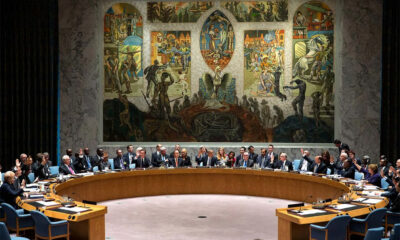
 Latest News4 days ago
Latest News4 days agoUN Security Council members ‘divided’ over Afghanistan issue
-

 World5 days ago
World5 days agoBiden says Netanyahu not doing enough to secure hostage deal
-

 Sport3 days ago
Sport3 days agoAfghanistan thrashes New Zealand 5-1 in five-a-side futsal tournament match
-
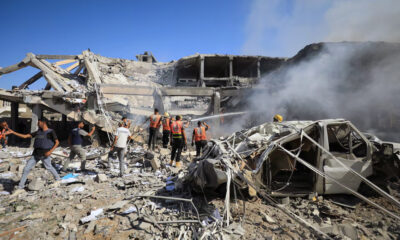
 Latest News4 days ago
Latest News4 days agoIsraeli attacks in Gaza kill 35 Palestinians but pauses allow third day of polio vaccinations
-
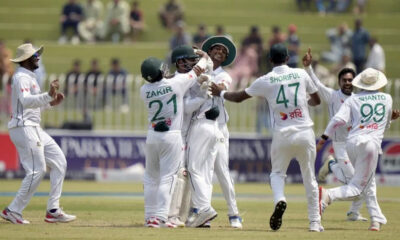
 Sport4 days ago
Sport4 days agoBangladesh sweep test series in Pakistan in healing touch for troubled nation
-
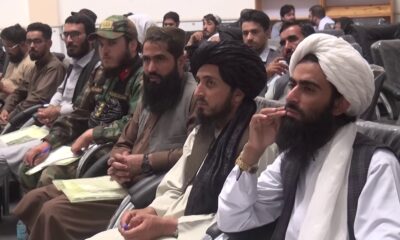
 Latest News3 days ago
Latest News3 days agoDiscussion program launched for journalists and Herat spokesmen




